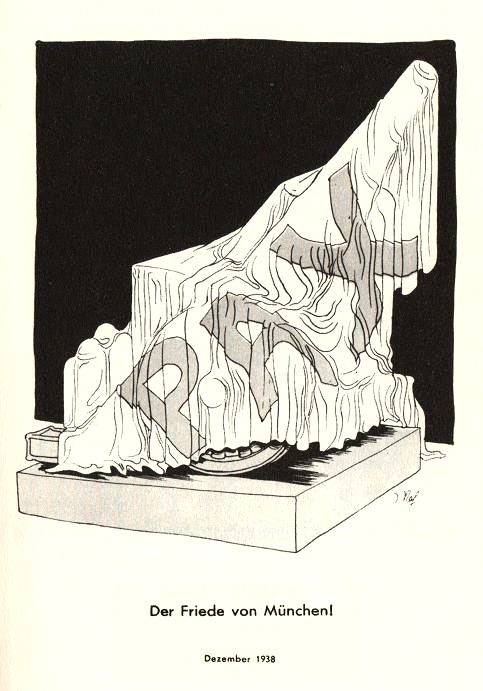Source A
Those who welcomed the Munich conference and its solution represented it as a victory for reason and conciliation in international affairs – appeasement as it was called at the time. The opponents of Munich saw in it an abdication by the two democratic powers, France and Britain; a surrender to fear; or a sinister conspiracy to prepare for a Nazi war of conquest against Soviet Russia. Munich was all these things.
From A.J.P.Taylor, The Myths of Munich, 1969.
Source B
The Sudetenland is the last problem that must be solved and it will be solved. It is the last territorial claim that I have to make in Europe. The aims of our foreign policy are limited. Ten million Germans found themselves beyond the frontiers of the Reich – Germans who wished to return to the Reich as their homeland.
Hitler speaking in Berlin in 1938.
Source C
By repeatedly surrendering to force, Chamberlain has encouraged aggression. Chamberlain’s policy has always been based on a fatal misunderstanding of the psychology of dictatorship.
Yorkshire Post, December 1938.
Source D
The final settlement forced Czechoslovakia to give Germany 11,000 square miles of territory. Within this area lay all the vast Czech fortifications. Czechoslovakia’s entire system of rail, road, telephone and telegraph communications was disrupted. It lost 66% of its coal, 86% of its chemicals, 80% of its textiles, 70% of its electrical power, and 40% of its timber. A prosperous industrial nation was split up and bankrupted overnight.
An American historian, William Shirer, writing in 1959.
Source E
Be glad in your hearts. Give thanks to your God. People of Britain, your children are safe. Your husbands and sons will not march into battle. If we must have a victor, let us choose Chamberlain. For the Prime Minister’s conquests are mighty and enduring - millions of happy homes and hearts relieved of their burden.
Daily Express, 30 September 1938.
Source F
Hitler says he has ‘No more territorial ambitions in Europe’. Do you believe him?
Yes: 7% No: 93%.
Results of a public opinion poll taken in Britain after Munich.
Source G
I believe that it is peace for our time ... peace with honour.
Neville Chamberlain speaking about the Munich Agreement in a radio broadcast, 1 October 1938.
Source H
We have suffered a total defeat. I think you will find that in a period of time Czechoslovakia will be engulfed in the Nazi regime. And do not think that this is the end. This is only the beginning.
Winston Churchill speaking in the House of Commons in October 1938.
Source I
"That fellow Chamberlain has ruined my entry into Prague... Do you know why I finally yielded at Munich? I thought the Home Fleet might open fire."
Hitler speaking in 1938 after Munich.
Source J
From the military point of view time is in our favour. If war with Germany has to come, it would be better to fight her in six to twelve months time.
Chamberlain’s military advisers 1938.
Source K
 
This cartoon comment on the Munich Agreement appeared in Nebelspalter, a Swiss satirical magazine, in December 1938.
'Pax' is the Latin word meaning 'peace'. The German title means: 'The Peace of Munich'..
Click here for the interpretation
Source L
They are little worms. I saw them at Munich.
Hitler’s opinion of Britain and France expressed in April 1939.
Source M
The Pact of Munich is signed. Czechoslovakia as a power is out. The genius of the Fuhrer and his determination not to avoid even a world war have again won victory without the use of force. The hope remains that the doubters have been converted and will remain that way.
A German general speaking after Munich.
|